Mashriq
All countries-
 War in Ukraine
War in UkraineA food crisis in the MENA region?
With Vladimir Putin’s forces gaining ground in Ukraine, a further increase in the price of bread could severely destabilise MENA countries. Rising costs would inevitably challenge states such as Turkey, which imports essential cereal supplies from Russia and Ukraine. The same applies to most economies in the Arab world, such as Egypt – the world’s largest wheat importer – Algeria, and Tunisia
-
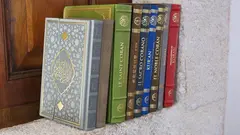 The Global Qur'an
The Global Qur'anSearching the suras
Research project "The Global Qur'an", brainchild of Professor of Islamic Studies Johanna Pink and sponsored by the European Research Council, analyses the history and dissemination of Koran translations while examining the role of nation-states and missionary movements. By Arnfried Schenk
-
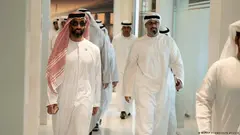 UAE foreign policy rethink
UAE foreign policy rethinkIs dialogue replacing proxy politics?
The UAE is revisiting its foreign policy goals with the aim of boosting its global trade partnerships and ensuring its security and political stability, by replacing robust military intervention and proxy politics with dialogue and diplomacy. By Mohammad Barhouma
-
 Interview with Asef Bayat
Interview with Asef BayatExamining the Arab Spring revolutions from within
Asef Bayat, professor of Sociology at the University of Illinois, Urbana-Champaign, has been studying revolutions and how they affect people since 1979. In his recent book, "Revolutionary Life: The Everyday of the Arab Spring", Bayat takes a new approach to studying revolutions by focusing on how they affect citizens in their everyday lives. Tugrul von Mende spoke to him about how his understanding of revolutions has changed over the past 20 years
-
 Arab world
Arab worldArab youth: Aspirations for the New Year
Arab youth express their hopes and wishes for the New Year, spanning everything from civil and political rights, to education, to arts and culture. By Rafiah Al Talei
-
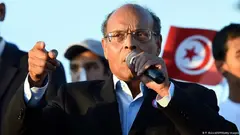 Tunisia's ex-president Moncef Marzouki
Tunisia's ex-president Moncef MarzoukiThe conscience of the Arab Spring
Moncef Marzouki was Tunisia's first democratically elected president after the fall of dictator Ben Ali. Today he is the most prominent critic of increasingly counter-revolutionary developments under President Kais Saied. Commentary by Ali Anouzla
-
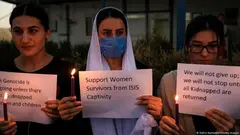 Iraq's Yazidi women
Iraq's Yazidi womenAfter tragedy, new freedoms and opportunities
Historically Iraq's Yazidi community was isolated, under-resourced and very conservative. Seven years after the "Islamic State" tragedy, the community is more open to the world – and Yazidi women are benefitting. By Cathrin Schaer
-
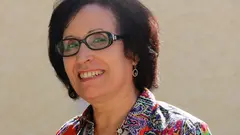 Women's rights in North Africa
Women's rights in North Africa"The headscarf is losing its religious edge"
Moroccan sociologist Fatima Sadiqi believes that women's movements in North Africa have changed over the past ten years. Today, women from all social classes are fighting together for more rights, regardless of whether they are "secular" or "Islamic" feminists. Claudia Mende spoke with her for Qantara.de
-
 "The Book of Charlatans"
"The Book of Charlatans"Mediaeval Syria's answer to Mark Twain
In this new bilingual edition, translated by Humphrey Davies, al-Jawbari, one of the thirteenth century's leading experts in skullduggery reveals all there is to know about the wiles of false prophets, quacks, prestidigitators, cat burglars, money changers, false alchemists, and – worst of all – women. By Marcia Lynx Qualey
-
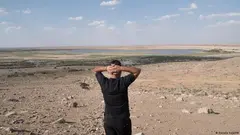 Arab world
Arab worldConflict and climate change drive Syria's water crisis
Northeastern Syria is experiencing its worst drought in nearly 70 years, with rising temperatures and erratic weather exacerbated by tensions with Turkey. Daniela Sala, Bart von Laffert and Shaveen Mohammad report
-
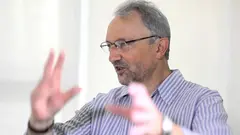 Arabist Tim Mackintosh-Smith
Arabist Tim Mackintosh-Smith"Reading Arabic is a bit like playing chess"
Tim Mackintosh-Smith's latest book – "Arabs" – reveals how linguistic developments helped and hindered the progress of Arab history. In interview with Qantara.de, he talks to Elisabeth Knoblauch about how, even in today’s politically fractured post–Arab Spring environment, Arabic itself is still a source of unity and disunity
-
 Middle East
Middle EastLebanon: Influencers join together to fight hate speech
A group of 20 social media influencers in Lebanon is seeking to de-escalate political tensions and overcome sectarian problems. Their outreach is impressive among the young and tech-savvy population. By Jennifer Holleis and Razan Salman
